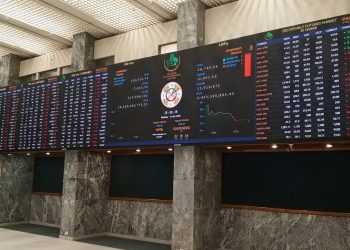ISLAMABAD: The government has made several changes to federal budget for fiscal year 2023-24 as part of last-ditch effort to secure funding from the International Monetary Fund (IMF).
Finance Minister Ishaq Dar unveiled the changes to the federal budget in the National Assembly. He said Pakistan and IMF held detailed negotiations for the past three days as part of efforts to complete the pending review during which it was agreed to implement additional taxation measures and reduce expenditures.
He said the government aims to generate another Rs215 billion in taxes and cut spending by Rs85bn in the next fiscal year, without reducing the federal development budget or the salaries and pensions of government employees.
He said the new measures will revise the revenue collection target to Rs9.415 trillion and put total spending at Rs14.48tr, he said. The share of the provinces would be increased to Rs5.39tr from Rs5.28tr. The finance minister said the government had also lifted import restrictions implemented in December last to reduce the current account deficit.
He said the allocation for the Benazir Income Support Programme was also revised from Rs450bn to Rs466bn for FY24. Besides, the petroleum development levy would be raised from Rs50 to Rs60 per litre. The total outlay of the budget will now be Rs14.48tr.
Ishaq Dar presented the budget for fiscal year 2023-24 on June 9 and announced new revenue measures of Rs223bn in addition to all taxes worth Rs500bn introduced in a mini-budget in mid-February. The sum of new tax measures for the coming fiscal year stands at Rs938bn.
He said the IMF has agreed to with the government’s stance and hoped the measures will reduce the fiscal deficit. He said the government believes in complete transparency and the details of the meetings with the IMF are being shared with the public. He said once the agreement is reached with the IMF, it will also be uploaded on the website of the finance ministry.
Dar said the government had decided to keep the super tax intact, along with the 0.6p percent tax on cash withdrawals from banks. It is expected that government will bring further tax amendments in the finance bill.
The finance minister said the burgeoning pension budget has become unsustainable. He announced a series of pension reforms, including the establishment of the Pension Fund and said rules and regulations are being framed. He also announced the abolishment of multiple pensions for the officers of grade 17 and above, saying the retired officer will now receive only one pension.
He said that after the death of a pensioner and his or her spouse, the dependents will receive the pension up to 10 years only. In case of re-employment after retirement, the officer may opt either for the pension or salary.
Ishaq Dar maintained that the windfall gain tax is not directed against any company or individual. He said this tax will be applicable from 2021. He said this tax is in place in many countries and it is aimed at adding value to the system.
The IMF’s Extended Fund Facility (EFF) programme is set to expire on June 30. Pakistan has been trying to secure $1.1bn of funding stalled since November
Prime Minister Shehbaz Sharif held a third meeting with the IMF Managing Director Kristalina Georgieva in Paris before his departure for London. He reiterated Pakistan’s commitment to complete the IMF programme.
The prime minister said Pakistan values the world’s support to overcome its severe economic challenges. He assured the IMF that Pakistan will continue to fulfill its commitment with international community.
He said inevitable measures will have to be taken to overcome the economic crisis of the last four years. He said government desires to maintain balance between providing relief and economic realities.



































